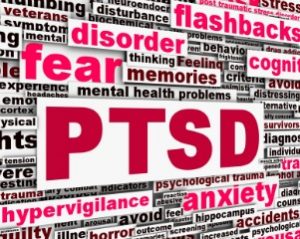 This article is essential reading for any trainer or coach to know some of the signs and symptoms of trauma and the effects it can have on their profession.
This article is essential reading for any trainer or coach to know some of the signs and symptoms of trauma and the effects it can have on their profession.Trauma is incredibly common (eg, 80% lifetime prevalence in the UK, and 1 in 4 women and 1 in 6 men has been sexually abused in the USA) and if not recognised, potentially undermining to any learning relationship.
A little background – As well as being a business trainer and coach I am a trauma educator. I train therapists, humanitarian aid workers and business people in the bodily aspects or trauma and psychological resilience generally. I have worked everywhere from with the Military in Sierra Leone, to The House of Lords to The Metropolitan Police and in a number of war zones. Strangely though I have seen little offered to life coaches and facilitators on the subject so I thought I’d write this and do a workshop later in the year. I have also been through a personal trauma journey as a humanitarian worker previous to becoming a trainer so this isn’t just theoretical for me.
“Trauma” is a wide, now banded around, term for almost anything so I want to be clear I refer to the clinical use as an experience of overwhelm involving threat to life or the integrity of self. Sadly abuse, rape, car accidents, assaults, etc are part of many people’s life experience and while many people recover from the acute psychological symptoms a proportion develop longer term symptoms. These are sometimes grouped as disorders such as generalised anxiety disorder (GAD) or post traumatic stress disorder (PTSD). Here I list some of the more common symptoms that can be trauma related generally and how they relate to facilitation.
– Hyper arousal and avoidance
Trauma can trap people in the fight-or-flight response leading to agitation and concentration issues. The challenges to classroom learning particularly this produces are obvious. Irritability and poor anger management can be an aspect of hyper arousal as can anxiety and avoidance of triggers that remind someone of a traumatic event. If someone refuses to take male or female partners in an exercise for example there may be a very good reason for this.
– Physical and emotional numbing
One natural defence to overwhelming physical and emotional feelings is numbing. This can lead to a kind of insensitivity and even a lack of empathy or cynicism that can make certain kinds of soft-skills training for example more difficult. Being “spaced out” is also common in traumatised people who have become uncomfortable in their own skin and dissociate as an escape.
– Boundary, trust and relationship issues
Trauma is toxic to relationships and given that all learning happens through interpersonal connection this is worth trainers knowing about. The quality of coaching possibly correlates directly with the quality of trust built and if someone has been traumatised they may need more time and care. Trauma can also leave people with poor boundaries unable to say no (careful of pushing people to do exercises) or having an overly defended aggressive no (that “difficult” delegate).
– Intrusive symptoms
Some traumatised people suffer from intrusive obsessive thoughts – again effecting concentration, and others full dissociative “flashbacks” where someone thinks they are back in the traumatising situation. The latter is quite rare but still worth knowing about.
What a trainer or coach can do
– be aware of and compassionate towards symptoms – this alone is a great start
– know when to refer – a trainer or coach is not a therapist. If in doubt refer
– be careful with touch, boundaries and consent
– work on their own trauma if they have it. Hurt people (untreated) hurt people
– know that long term trauma can lead to growth and a good coach can be part of healing even when not working therapeutically
– Effective treatment methods
Happily there are several effective treatment methods for trauma. I believe bio-psycho-emotional-social-spiritual solutions work best with much individual difference in suitability. The following are things I have found helpful:
CBT – for avoidance and some psychological aspects
EMDR – eye movement therapy to reduce held “charge”
EFT – “tapping” to reduce charge
TRE -trauma releasing exercises lying down traditionally or my colleague Francis Briers standing version
Meditation and yoga – used wisely by a trauma specialists
Body therapies – eg Hakomi and Somatic Experiencing – trauma is held in the body
Spiritual counselling – meaning making is central to trauma
If any trainers and coaches would like to know more we will be doing a one-day course in Brighton on August 4th – mail me for details. Markatintegrationtrainingdotcodotuk
The following videos are good free resources too: